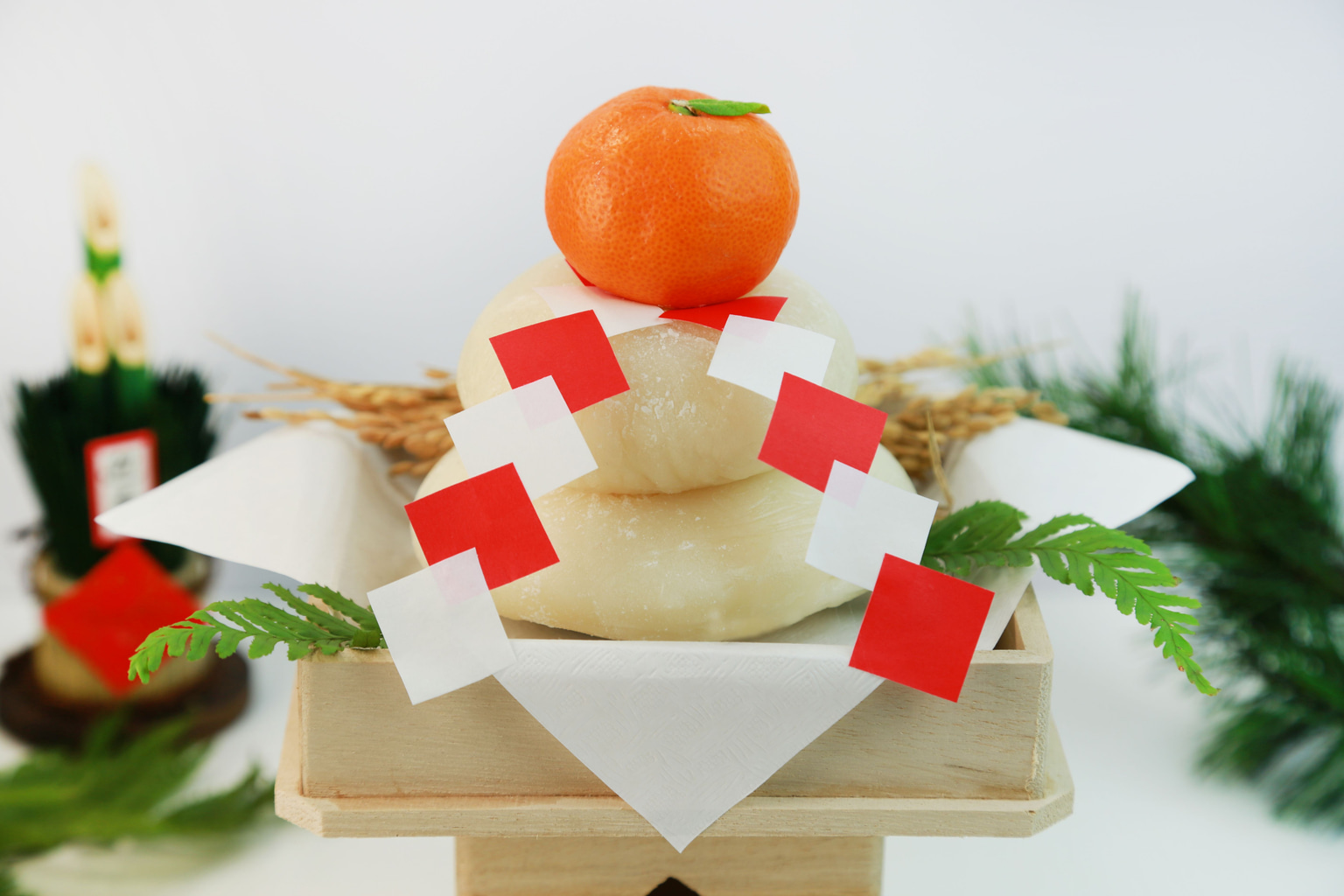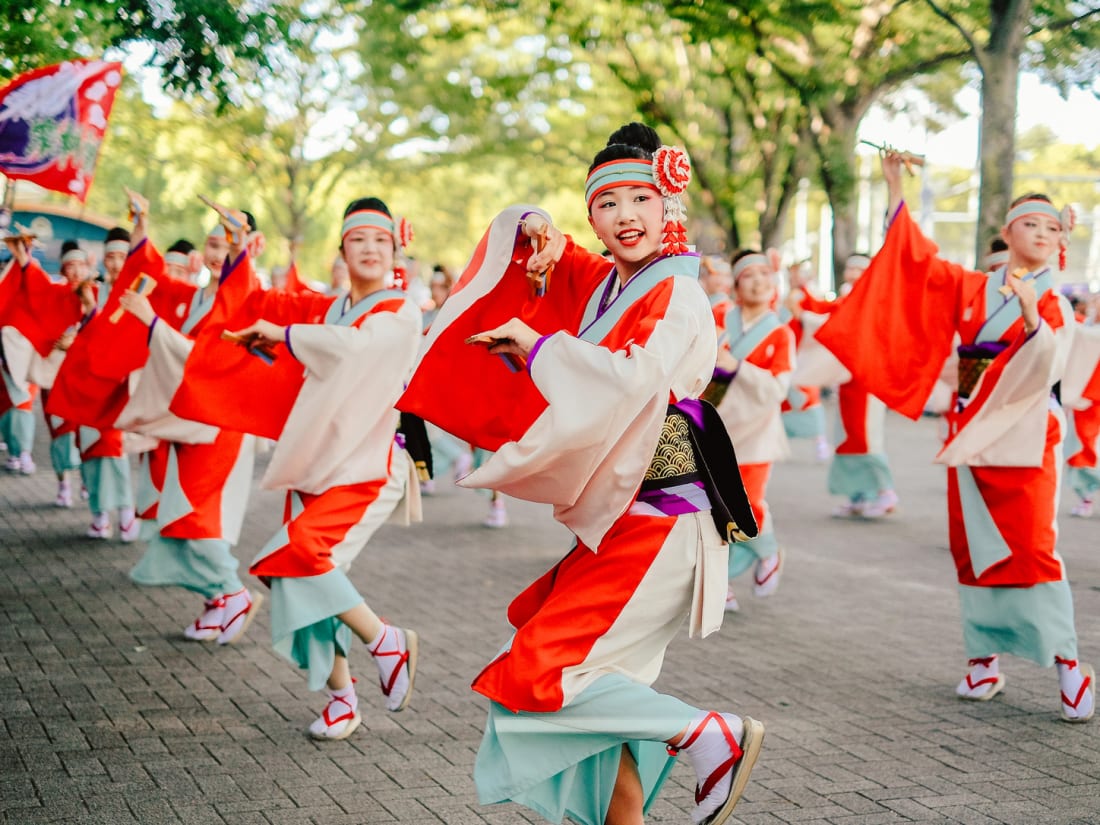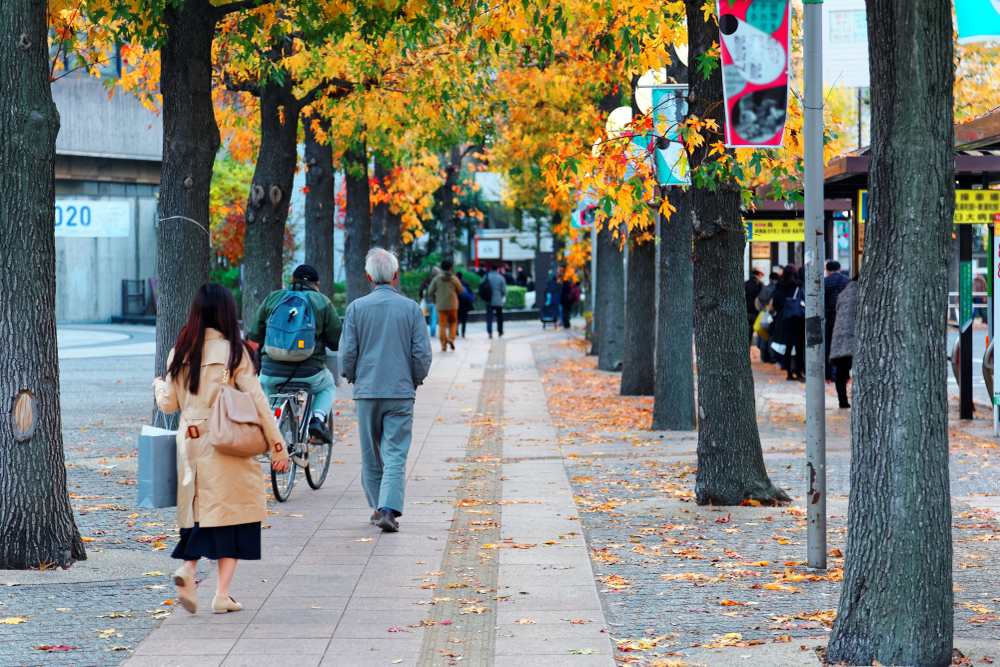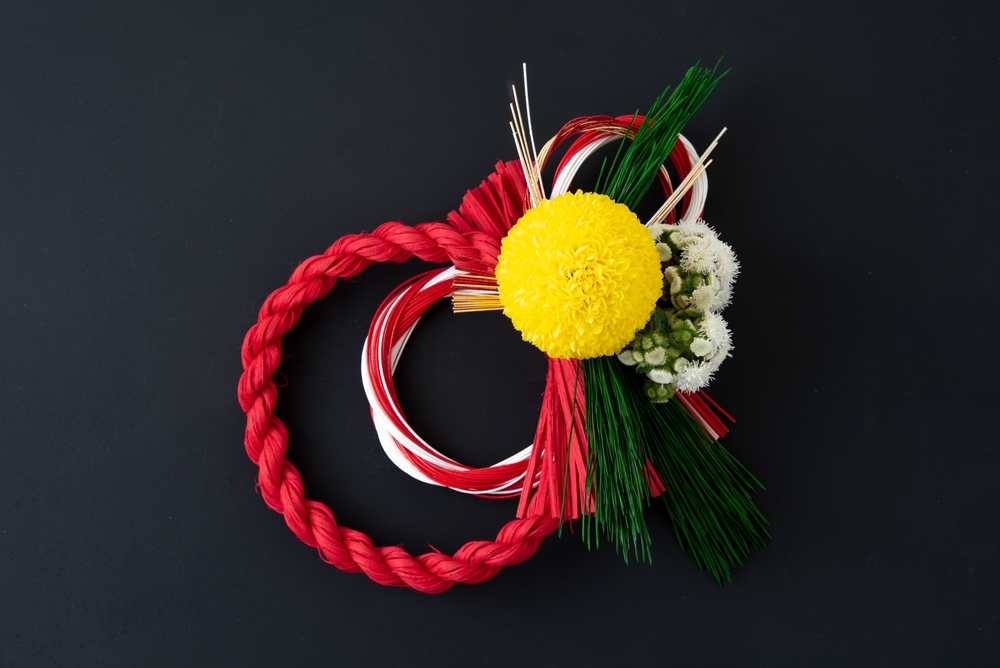Japan is known for having a lot of national holidays, 16 in fact. It can be confusing to keep up with all these celebrations, especially as some of them change each year. We’ve put Japanese public holidays and traditions (noted as celebrations) in a nice, handy list that you can refer to. Thank us later.

January
January 2 – New Year’s Day
Known as oshougatsu, this is a public holiday which has been held in line with the west since 1873, when Japan switched to the Gregorian calendar. In 2023, as New Year’s Day is on a Sunday, the official holiday is moved to Monday, January 2.
January 9 – Coming of Age Day
Coming of Age Day was first established as a holiday in 1948 to celebrate people reaching adulthood. From last year the age of adulthood officially changed from 20 to 18.
February
February 3 – Setsubun (Celebration)
You’ll see paper demon masks and bags of dried beans appear in shops for Setsubun.
February 11 – Foundation Day
Foundation Day is on a Saturday this year, so you probably won’t even notice it.
February 14 – Valentine’s Day (Celebration)
In Japan it is a tradition for women to give men chocolate on Valentine’s Day. Or, in 2023, it’s a time for anyone to give anyone chocolate. This favor is returned one month later.
February 23 – Emperor’s Birthday
All hail the emperor. Thanks for the holiday, Naruhito.
March
March 3 – Hina Matsuri (Celebration)
Normally celebrated around school age, Hina Matsuri, also known as the doll festival, is a day for people to eat arare sweets and celebrate girls.
March 14 – White Day (Celebration)
White Day is when men traditionally give women gifts.
March 21 – Spring Equinox
Spring has sprung.

Photo by BALL LUNLA VIA SHUTTERSTOCK
April
April 29 – Showa Day
This was when Emperor Showa was born. It’s a Saturday this year, which means it might not even count.
May
May 3 – Constitution Memorial Day
When Japan surrendered after World War II, the country’s constitution was rewritten, bringing it in line with democracies of the US and the UK. This is a day to celebrate when the constitution came into effect: May 3, 1947.
May 4 – Greenery Day
Greenery Day is a Japan public holiday to give thanks to nature. People might head to parks or out into the countryside.
May 5 – Children’s Day
A day to give thanks to children. People display large flying koi decorations outside their homes and in public spaces.

Photo by julianne.hide via Shutterstock
July
July 7 – Tanabata (Celebration)
Also known as Star Festival, around Tanabata time, strips of colorful paper known as tanzaku appear in public spaces and outside homes across Japan.
July 17 – Sea Day
A day to celebrate the sea. As Japan is an island it has a lot to give thanks for: protection, food, transport and more.
August
August 11 – Mountain Day
Around three-quarters of Japan’s national land is mountainous, giving the country a lot to be thankful for on Mountain Day. Since ancient times, mountains have played an important role in Japanese culture and are central to its national religion of Shintoism.
August 11-13 – Obon (Celebration)
People go back to their birthplace to visit the graves of those deceased around the time of Obon.

September
September 18 – Respect the Aged Day
Japan is infamous for its ageing population. There are a lot of them to respect on Respect the Aged Day.
September 23 – Autumnal Equinox
It’s time to welcome fall.
October
October 9 – Sports Day
The chance for everyone to get active, Sports Day was established in 1964 to commemorate the opening of the Tokyo Olympics.

November
November 3 – Culture Day
The birthday of Emperor Meiji, it was named Culture Day in 1949 to promote arts and culture.
November 23 – Labor Thanksgiving Day
Labor Thanksgiving Day has its roots in harvest festivals. It stands as a day to celebrate production and give thanks to each other for hard work throughout the year.
December
December 24 – Christmas (Celebration)
Many Japanese celebrate Christmas on December 24.









